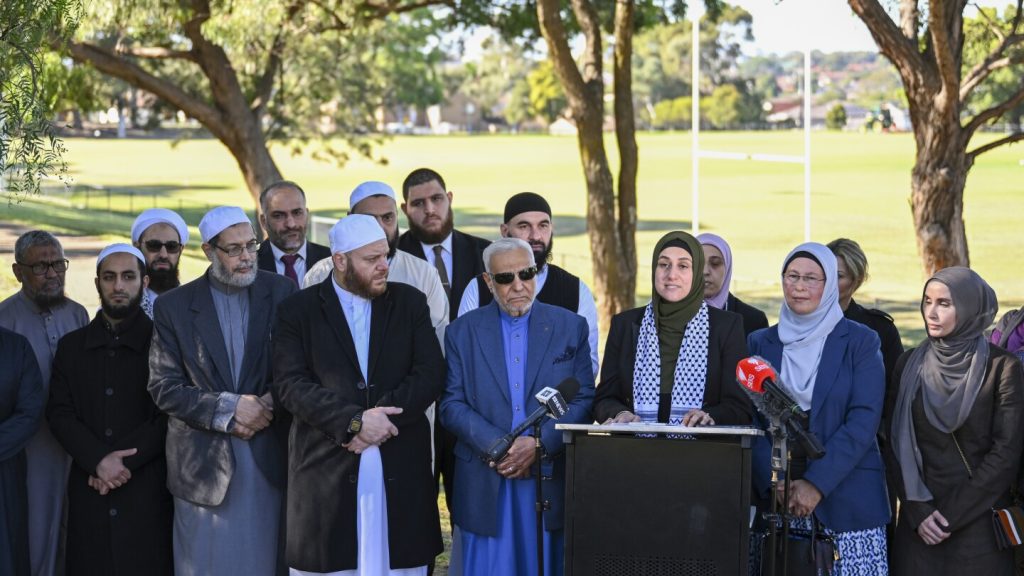Muslim groups in Australia are criticizing the disparity in the police response to two recent stabbing attacks in Sydney, pointing out the different treatment given to each incident. The Australian National Imams Council expressed concerns over the classification of a stabbing at a shopping center in Bondi Junction as a mental health issue, while the stabbing of a Christian bishop at a church was swiftly labeled a terrorist act. This has created a perception of a double standard in law enforcement and judicial processes, further alienating the Muslim community in Australia.
The attack on Bishop Mar Mari Emmanuel and a priest at Christ the Good Shepherd Church on April 15 led to the arrest of a 16-year-old boy who has been charged with committing a terrorist act. Additionally, five teenage boys aged from 14 to 17 have also been charged with terrorism offenses in connection with the church stabbings. The Joint Counter-Terrorism Team carried out highly publicized raids across southwest Sydney, resulting in seven arrests. Muslim groups are calling for an inquiry into the processes leading up to these police raids to ensure transparency and prevent the marginalization of different ethnic and religious groups.
The accused boys are said to follow a violent extremist religious ideology and appeared in a Sydney children’s court, with only the 14-year-old being granted bail. However, he remains in custody pending an appeal. The spokesperson for the Australian National Imams Council emphasized the need to address racial and religious profiling that has been ingrained in society for decades. While New South Wales state Premier Chris Minns highlighted the importance of correctly identifying allegations of terrorism, the council stressed that the presumption of terrorism being inherently tied to religion is harmful and inaccurate.
In a separate incident, a Sydney university student settled a defamation claim against Australia’s Channel Seven network, which wrongly identified him as the assailant in the Bondi Junction shopping mall attack. The student, Benjamin Cohen, was falsely named as the attacker, leading to harm to him and his family. Police later identified the actual assailant as 40-year-old Joel Cauchi, who was shot and killed by responding officers. Seven Managing Director Jeff Howard issued an apology to Cohen and his family, acknowledging the grave mistake made in identifying him as the attacker. Additional details of the settlement were kept confidential.
Overall, the incidents in Sydney have sparked controversy and raised concerns within the Muslim community regarding the treatment of terrorism-related offenses and the potential for bias or profiling based on religion. Muslim groups are advocating for more transparency and accountability within the judicial system to prevent further marginalization of minority groups. While there is recognition of the need to address allegations of terrorism accurately, there is also a call to avoid harmful presumptions about religion’s connection to terrorism. The settlement in the defamation case highlights the impact of misinformation and false accusations on individuals and the importance of accurate reporting in sensitive situations.


